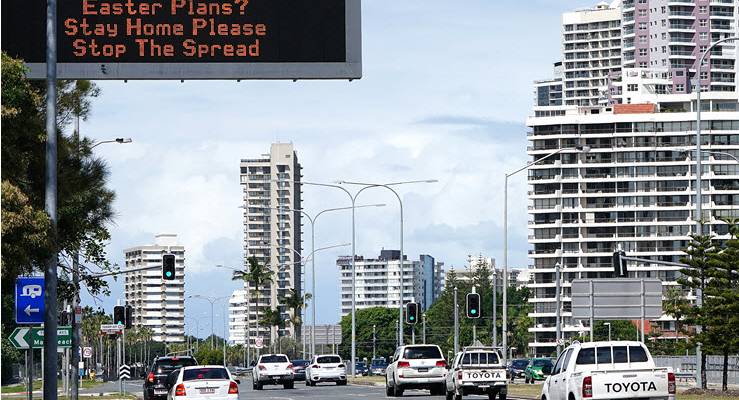
While England suffers, Boris Johnson remains alive. Australia seems to be doing pretty well, but please don’t pop the champagne until well after Easter. And one of the Middle East’s worst humanitarian disasters sees a ceasefire amid pandemic fears.
The big, bad numbers
There are now more than 1.5 million COVID-19 cases worldwide, less than a week after we hit the 1 million case mark, indicating that globally, the pandemic could still get a lot worse before it gets better.
The United States continues to lead the world in infections, with more than 430,000. New York City had 779 deaths yesterday. Things continue to worsen in Britain, where yesterday, 938 people died from the virus.
One silver lining for many Britons is that Boris Johnson’s condition is said to be stable, with advisers saying the prime minister is in good spirits. Johnson was admitted to hospital and later intensive care (ICU) this week after contracting the virus and continuing to maintain his standard workload despite his doctors advising otherwise.
The curve flattens and bends
When it comes to the pandemic, Australia really does seem to be the lucky country, for now at least. For more than a week now, our growth in new cases has been trending down.
Yesterday, there were 104 new cases nationally, the lowest figure since mid-March, which puts our growth rate under 2%, when it was more than 25% two weeks ago. In NSW, the most-affected state, there were just 39 new cases in the last 24 hours, again the lowest rate of growth since March 16.
About a week ago, that number was around 200 a day. Yesterday, just four of the state’s new cases came from local sources with unknown contacts (compared with nine the day before) indicating the rate of community transmission could be slowing too.
There is early evidence that our social distancing measures have been working — just two weeks ago, the Medical Journal of Australia published an article predicting we might have breached ICU capacity by now.
That strong start has also begun to get international attention — Financial Times data whiz John Burn-Murdoch once again praised our response, saying Australia’s cumulative death numbers were “still looking promising.” While we recorded our 51st death this morning, our death rate remains around 0.5%.
But (and the golden rule of coronavirus reporting is that every silver lining needs a “but”) experts warn we should not use this good start to get complacent. We’ve bought ourselves valuable time to prepare for the next step. And the government’s modelling released this week shows just how dire a situation we have avoided so far. But normalcy could still be a fair way off.
Jesus says stay home
One of the biggest reasons not to get complacent is that the Easter holidays are still ahead of us. The long weekend is usually a time when people are desperate to get out of the cities.
This year, governments and health officials are desperately warning us to stay indoors, not to visit families, and for city slickers to stay the hell away from the regions. In NSW, the police have vowed to brutally enforce the rules and keep everyone at home. The government finally sent out another mass texts, urging people to stay at home. Sydney’s Fish Market, which normally has its busiest day of the year on Good Friday will stay open, albeit with tough restrictions.
Church services across the country are turning to innovations like Zoom and drive-through confessions. It’s not just a big month for Christians either. Passover began yesterday, and Ramadan starts in two weeks.
For Jewish families, seder, which marks the beginning of Passover, is an occasion that brings together generations. This year, that tradition has been lost, or at least, taken online.
Saudis to pause bombing campaign
Coronavirus might have brought brief respite to the war in Yemen. Yesterday, the Saudi coalition declared a two-week unilateral ceasefire in their military campaign against Houthi rebels in Yemen. The conflict in Yemen began in 2015, after the Saudis tried to oust an Iranian-backed rebel group which had toppled a Saudi-friendly government. Since then, it’s led to more than 100,000 deaths, many of whom are civilians, and created a devastating famine.
The decision follows a recent plea made by the United Nations for warring countries to put hostilities aside amid the pandemic. According to UN Secretary General Antonio Guterres, there have been some positive moves in conflict zones in Afghanistan, Ukraine, the Philippines and Sudan.










Love the way “Saudi and friendly” got used together.
So much for the Religious Freedom bill when Caesar can shut down the lot – almost as if Omnipotence ain’t wot is used to be.